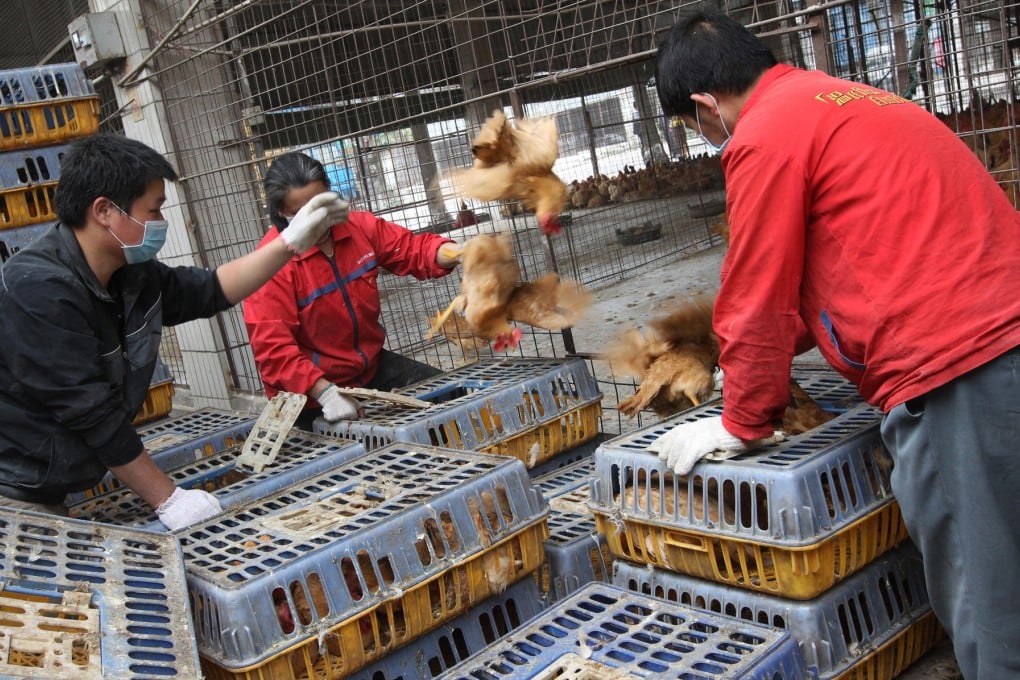Shenzhen poultry markets shut down amid H7N9 bird flu fears
Deadly bird flu strain had been found at both premises in Shenzhen

Health authorities ordered the closure yesterday of two Shenzhen wet markets where the deadly H7N9 strain of bird flu was detected.
The wet markets are in the border city's Longgang district. Today all poultry markets there will be closed for disinfecting.
The two poultry markets were closed for seven days from yesterday in order to cull all birds in stock and to carry out sterilisation, according to the Longgang authorities.
They said a team was sent on Sunday to collect 50 samples from three Longgang markets, including the two infected markets, and three samples were found to be infected.
In Hong Kong, live-poultry imports from Shenzhen farms have been banned since December 2 after the city's first H7N9 case was diagnosed.
The city will, however, continue to buy birds from other parts of the mainland as the government refuses to widen the ban despite a growing fear of the virus spreading.
Secretary for Food and Health Dr Ko Wing-man said he had requested mainland health authorities conduct more sensitive blood tests on poultry at farms before exporting the animals to the border, where Hong Kong would run the tests as well.